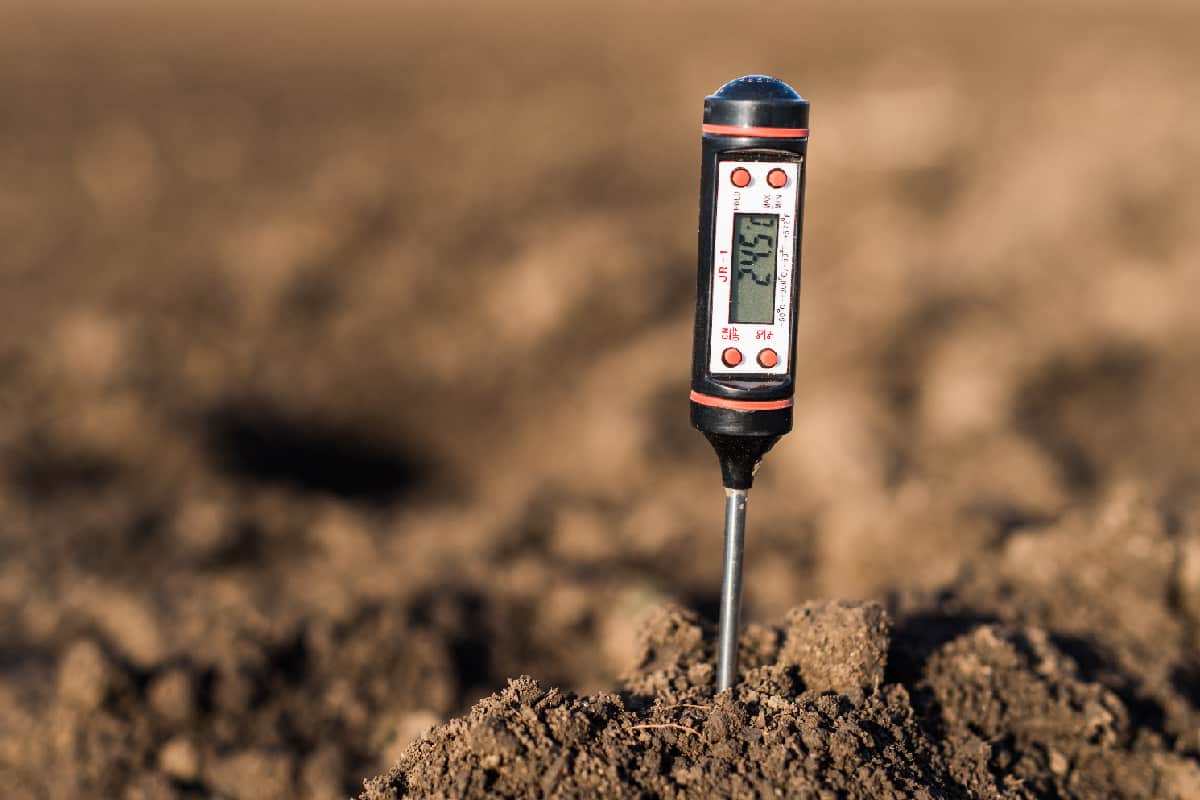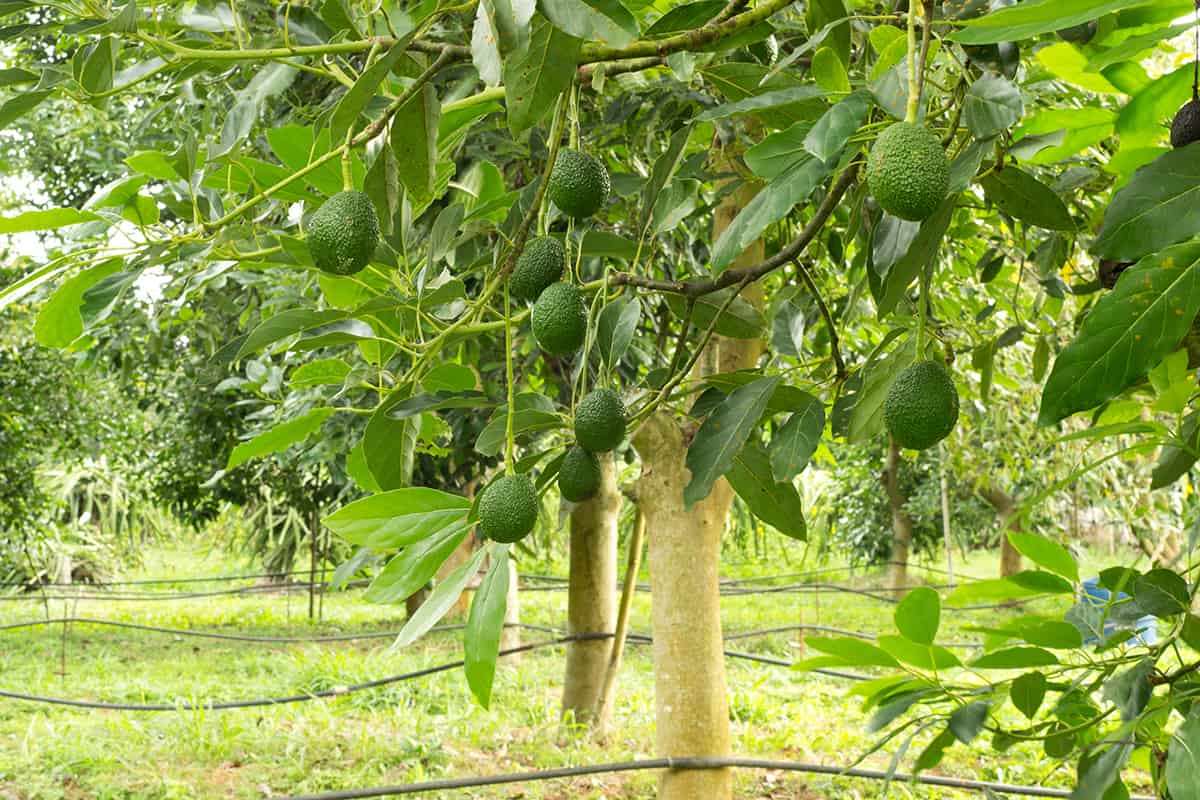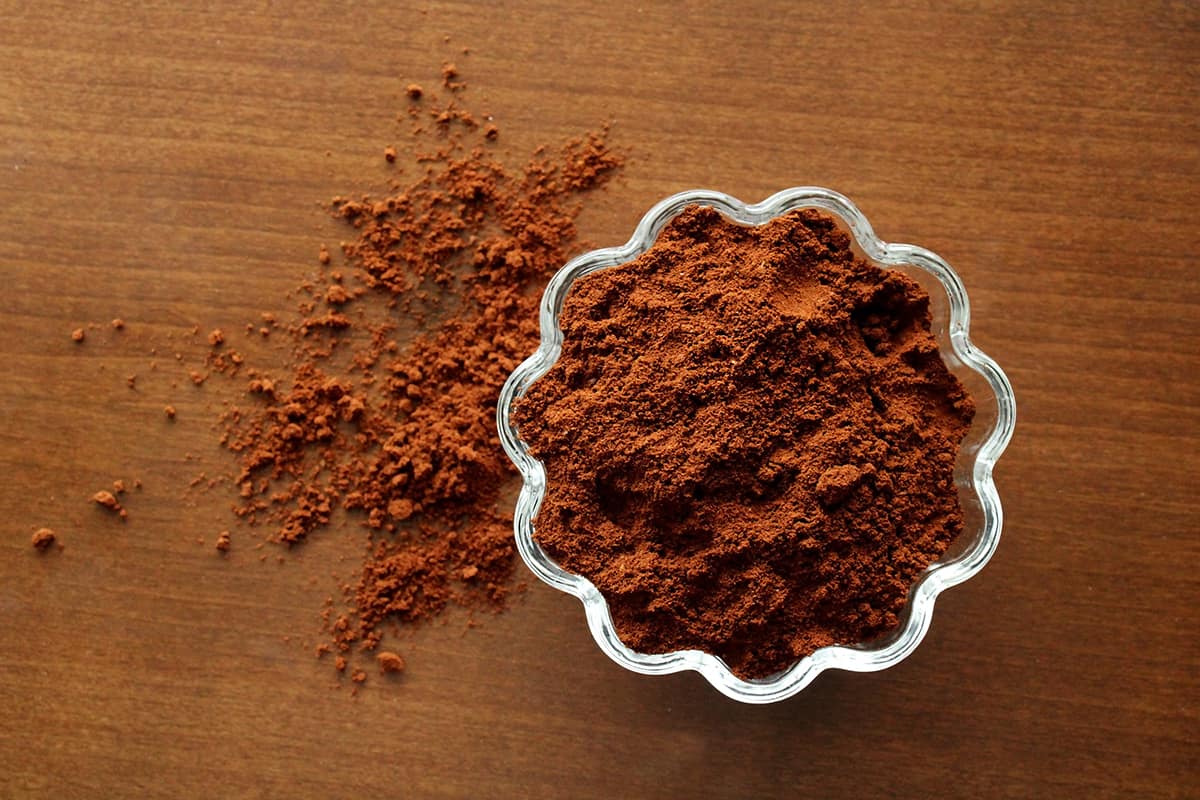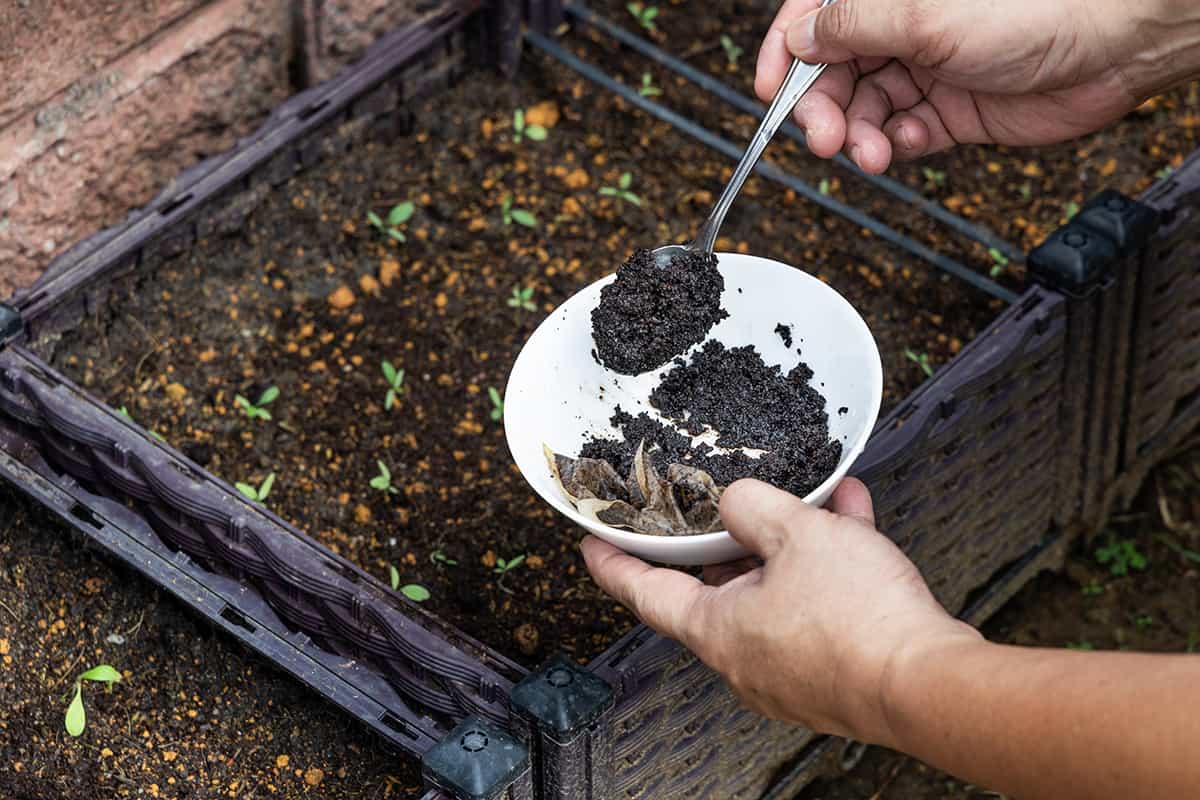If you're wondering whether the leftover grounds from your coffee beans can help the avocado trees in your garden, then you came to the right post. We gathered helpful information from trusted sources regarding the subject, and here is what we discovered.
The answer is yes. By supplying nitrogen, potassium, magnesium, and other elements that are excellent for avocado trees, coffee grounds help the growth of avocado trees.
But it is common knowledge that coffee grounds have a lot of caffeine. So can it harm your avocado trees? How many coffee grounds should you put? Read on as we discuss these in the succeeding sections.
We'll also talk about the pros and cons of using coffee grounds for plants in general, ways to apply them, and other plant food options you can use for your avocado tree. Keep reading!
![Small avocado trees in the field, Do Coffee Grounds Help Avocado Trees? [And How To]](https://gardentabs.com/wp-content/uploads/2022/08/Do-Coffee-Grounds-Help-Avocado-Trees-And-How-To.png)
Is Caffeine Harmful To An Avocado Tree?
Since plants naturally produce caffeine to ward off insects, it can be considered a pesticide. Since they also destroy important soil organisms and pollinating insects, pesticides typically do more harm than good.
Using too many coffee grounds might harm soil life, even though most of the caffeine is lost during brewing. This may also indirectly impact the plants because they depend on the healthy, rich soil to grow.
What Soil pH Level Does Avocado Thrive In?
The ideal soil pH range for avocado growth is 5-7. Alkaline soils with a pH higher than 7 are particularly harmful to avocados.
High soil pH can seriously impair their ability to absorb iron and zinc, and they will suffer.
What Is The pH Level Of Coffee Grounds?

Coffee grounds have a pH range of 5.5 to 6.8, which is almost ideal for avocado plants because they prefer a soil pH range of 5-7.
However, since most of the acidity is removed during brewing, used coffee grounds often have less acidity.
The pH of used coffee grounds is typically closer to 6.8, which is still beneficial for avocado trees.
How Much Coffee Grounds Should You Apply To Your Avocado Tree?

Generally speaking, try to keep the number of used coffee grounds in your soil or compost to between 15 and 20 percent. You can use this right away if you occasionally need an espresso brick.
Think about composting the daily pot first. A compost pile or avocado tree that receives excessive use may lead to nutritional and soil life imbalances.
How Do You Apply Coffee Grounds To Avocado Trees?
You can sprinkle some coffee grounds directly onto the soil in your garden if you have a small quantity. However, if you drink a daily pot of coffee, often more than 2 cups, think about composting it first to lessen the caffeine content.
Consider composting or combining coffee grinds with mulch if you have more than a small amount.
Too many coffee grinds can cling together and obstruct the moisture in the soil, in addition to having an increased concentration of caffeine and minerals.
They may also develop mold and cause problems for the plants. These problems can be avoided by first mulching or composting the coffee grinds.
Wait 2-3 months for the coffee grounds to decay correctly if you're composting them first. After that, you can surround the avocado plants with 1-2 inch layers of compost.
Again, leave about 3 inches between the compost and the tree to prevent contact. If you're mulching, pine needles, leaves, or bark are all suitable options for avocado plants.
The Pros And Cons Of Coffee Grounds For Gardening
Coffee grounds can be used in the garden, but there are certain disadvantages and situations when they should not be used. Here are some of the pros and cons you might want to know.
Pros
- Adding coffee grounds will enhance your soil's drainage, preventing water from pooling around plant roots and rotting the roots.
- It will aid in aerating the soil, much like how adding coffee grounds to the ground would enhance drainage. This is because adding organic matter to the soil will help enhance aeration, enabling roots to absorb moisture and nutrients and improve plant health.
- Coffee grounds are a type of organic matter, which means that adding them to your soil can help it retain water and generally increase the health of the soil.
- Applying compost that contains coffee grinds among your plants can improve the health of the foliage because nitrogen aids in promoting lush leafy growth.
- Coffee grounds are believed to repel these pests due to their flavor and aroma, as well as the fact that their gritty texture may operate as a physical barrier that slugs and snails do not wish to cross.
- Using coffee grounds in your soil or compost will boost the number of worms because they are supposedly a preferred worm food. For the health of plant roots and to aid in compost decomposition, your garden needs to have a healthy worm population.
- Coffee grounds can be used as mulch with other organic resources like shredded leaves. In addition to helping the soil retain heat in the winter and maintain cool in the summer, this can assist prevent moisture from evaporating from the ground by spreading over the top of the soil surrounding plants.
- Using coffee grounds instead of synthetic fertilizer, you can lessen the number of chemicals released into the environment.
Cons
- The relatively fine particles that makeup coffee grinds are easily compacted when they dry out to form a solid barrier. Your plants will experience thirst-related death if there is a physical barrier over the top of your soil that prevents water from penetrating.
- Caffeine can hinder seedlings from growing.
- Caffeine can harm mature plants by preventing seedlings from growing into established plants. The plant may become stunted due to the restriction on root expansion.
- Antibacterial properties exist in coffee. Although this is viewed as a benefit in daily life, it can lead to severe issues with soil health.
How Often Should I Apply Coffee To My Avocado Tree?

Coffee grounds are ideal as acidic mulch because of their acidic composition. However, you should exercise caution because using too much might be harmful. Avoid applying too frequently.
You could start by putting a tablespoon of fertilizer on the soil weekly. Then keep an eye on how the avocado responds to the coffee.
If the coffee grinds and avocado work well together, you can enhance the adding frequency. Every week or every other week, you can apply 1 cup.
What Other Fertilizers Are Good For Avocado Trees?
You can choose from various alternative fertilizers than coffee grounds to feed your avocado trees.
Fish Emulsion
Fish emulsion fertilizer is rich in nutrients since it is made from fish and can quickly increase the nutritional content of trees. The fish emulsion does not include more protein, fat, or oil than the actual fish.
As a result, you don't need to be concerned that your avocado trees have too many nutrients.
Citrus Tree Fertilizer
This one is the greatest fertilizer for your avocado tree because it was created specifically to grow these trees. Coffee grounds might be acceptable, but since they are a different kind of food, fertilizer for citrus trees is crucial.
Citrus tree fertilizer is an excellent source of nutrients, including iron, manganese, magnesium, zinc, boron, copper, and other elements. Citrus tree fertilizer also incorporates an acidic component to increase the soil's acidity.
Your avocado trees will flourish and be healthy as a result of it.
Mulch
Because of the leaves that fall around the avocado tree, it is a natural fertilizer. Despite rotting, these leaves still contain many nutrients for the root.
You should put leaves around a baby avocado tree in particular since they will increase the tree's ability to retain water.
Don't clean the leaves under your avocado trees since it's free for another reason.
In Closing
Using coffee grounds as fertilizers is not news. More gardeners use this practice.

While it is true that using this helps avocado trees by providing nutrients to the soil, you should still be cautious not to put too much since it can become harmful.
Want to read more? Check out these related posts!
5 Best Fertilizers For Citrus Trees
